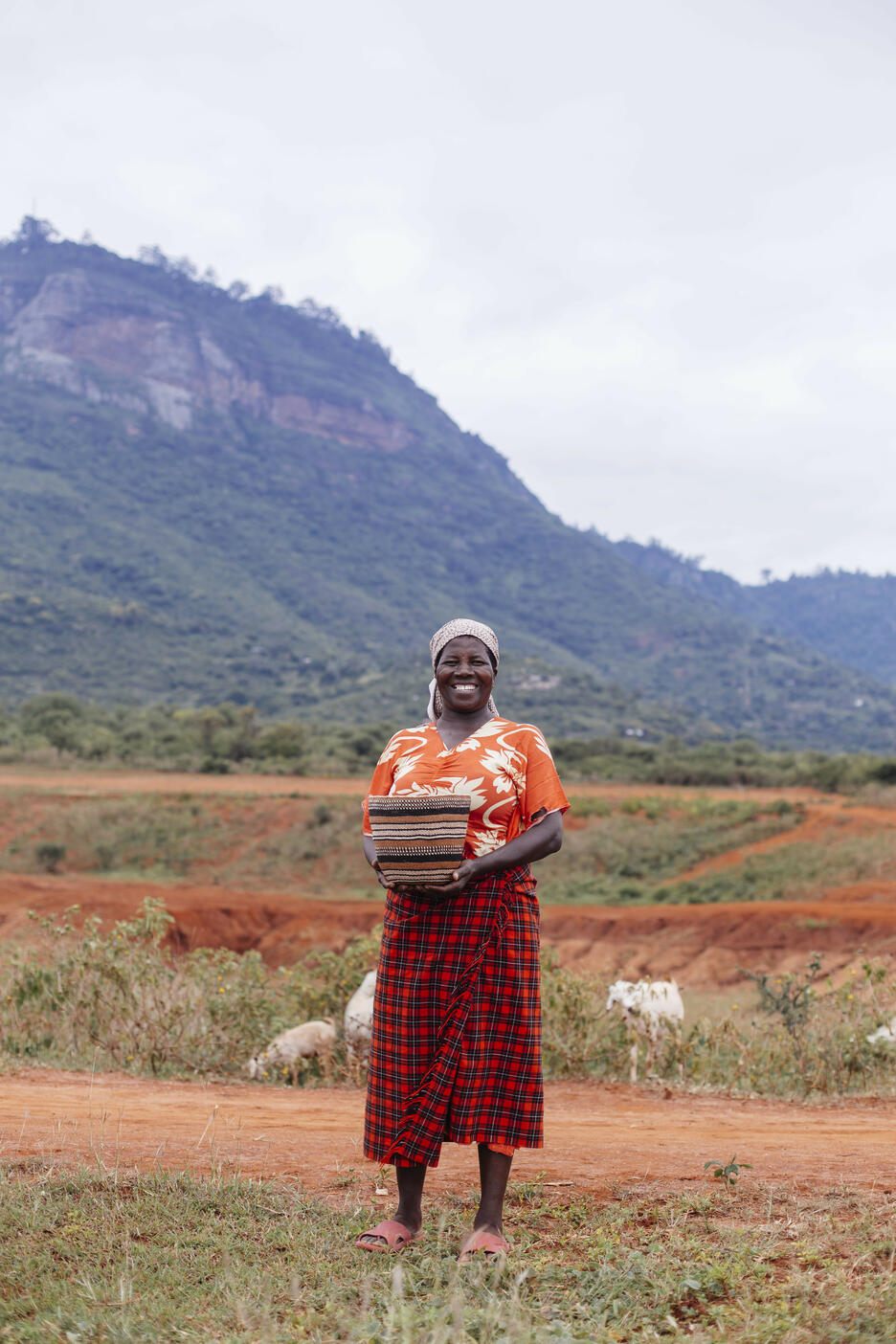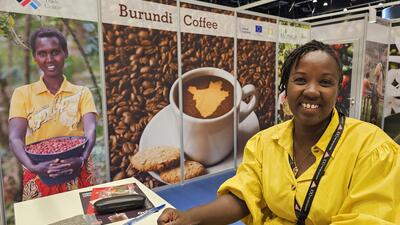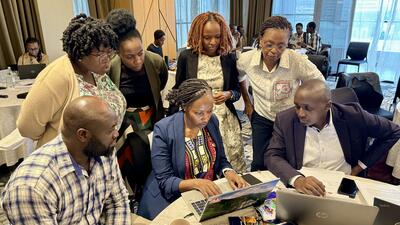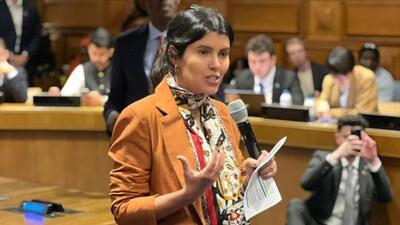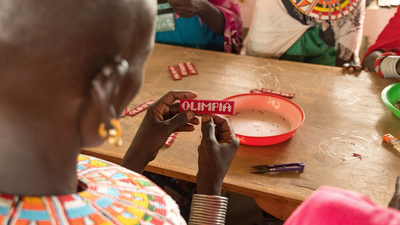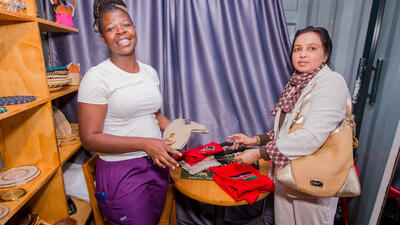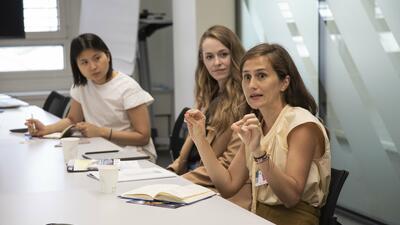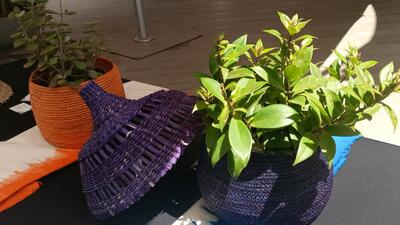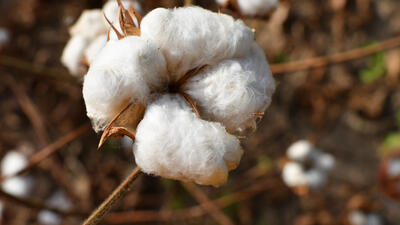
The basket weavers making a difference in Kasigau
Meet Hadithi Crafts, a female collective of over 1,700 basket weavers and artisans that use their skills to protect the environment. The organization currently supports 61 women’s groups that make handicrafts in the Kasigau region in southeastern Kenya. Their work complements larger conservation initiatives in the area.
The expert weavers in Hadithi use their handicraft skills to create beautiful, one-of-a-kind baskets.
Before discovering how to make money by weaving, many of these women would have been forced to cut down trees, either to burn the wood to make charcoal, or to clear the land for farming.
Now they’re earning more money to support their families, while preserving a unique craft.
Thanks to bulk orders for international brands like fashion retailer MIMCO, these artisans have been given the opportunity to work and the fuel to continue their conservation efforts. ITC’s Ethical Fashion Initiative and Artisan Fashion made the international connection and facilitated production for the Australian brand. ITC's main goal is to help small businesses grow by tying them into supply chains. “Together, we’re doing our part to help the artisans of Kasigau keep this unique ecosystem in its natural balance for years to come.“
The lush yet vulnerable habitat of Kasigau, situated between the vast Tsavo East and West National Parks, is home to both wildlife and local communities. To make basket weaving support conservation efforts, Hadithi partners with Wildlife Works, a company that creates jobs that benefits to communities through carbon financing for forest protection.
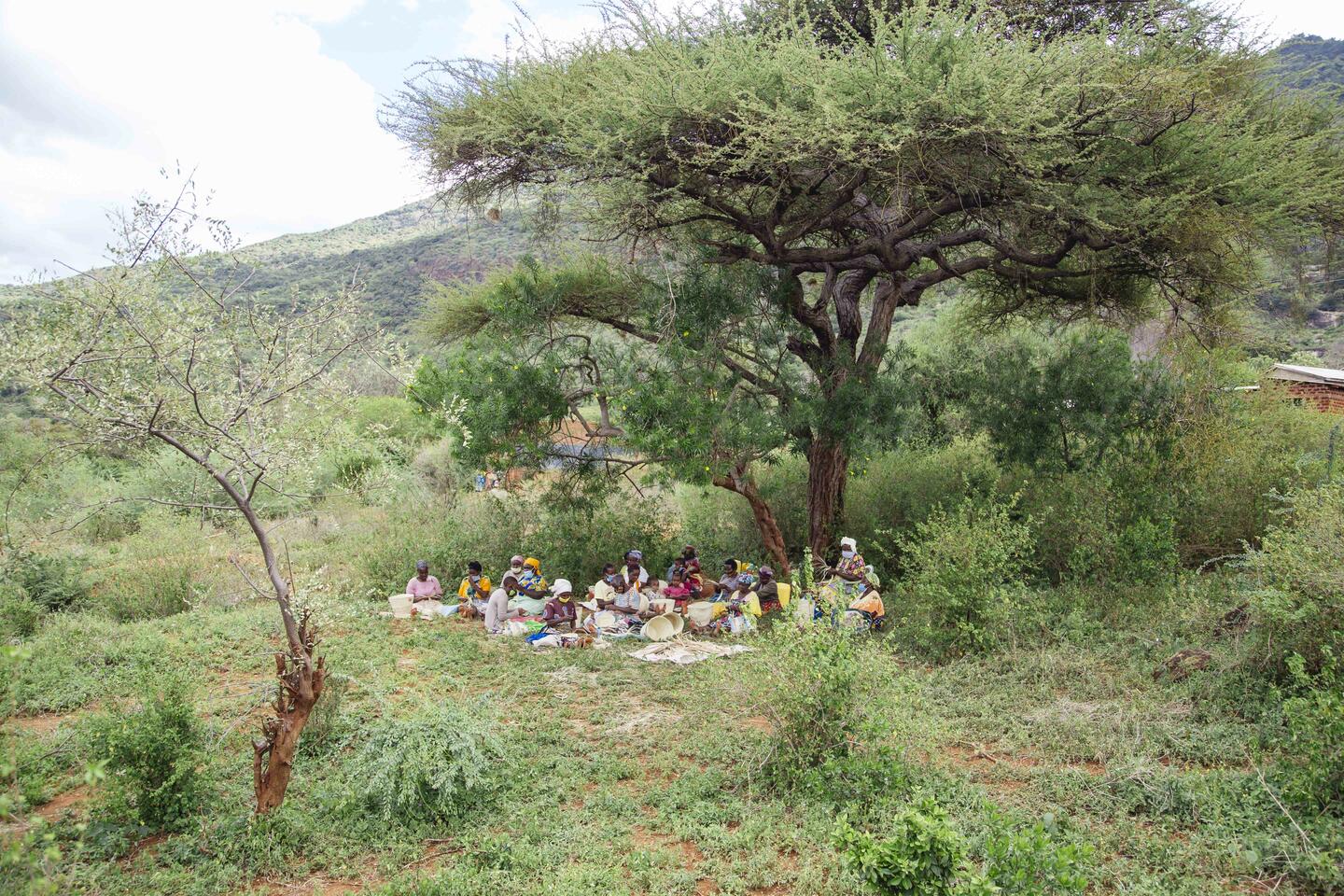
Wildlife Works, is the world’s leading REDD+ (Reducing Emissions from Deforestation and Degradation) management company. Their successful initiative allows landowners in the developing world to monetize their forest and the natural assets that come with it.
Because nature conservation is as much a collective effort as it is an individual work, conservation efforts are shared between the community and the female basket weavers.
Beautifully shot by Kenyan photographer Louis Nderi, this photo series is dedicated to the small but important efforts of basket weavers in Kasigau. The photos go hand-in-hand with a survey conducted among the weavers, providing insights to their challenges, viewpoints and vision for the future of their land.
Ask the basket weavers what they struggle with the most, and similar answers emerge again and again: “poor roads”, “wildlife animals destroying farms”, and “lack of food”.
When asked why the community should care for wildlife sanctuaries in Kasigau, weaver Jennifer Mrunde Masha said: “It’s important in order to hinder wild animals from coming to our farms, also to increase trees in our forest.”
Hope Avua, a resident of Bungule, a village in Kasigau, had a similar reply: “It is important to look after the sanctuaries to preserve the trees and the indigenous animals.”
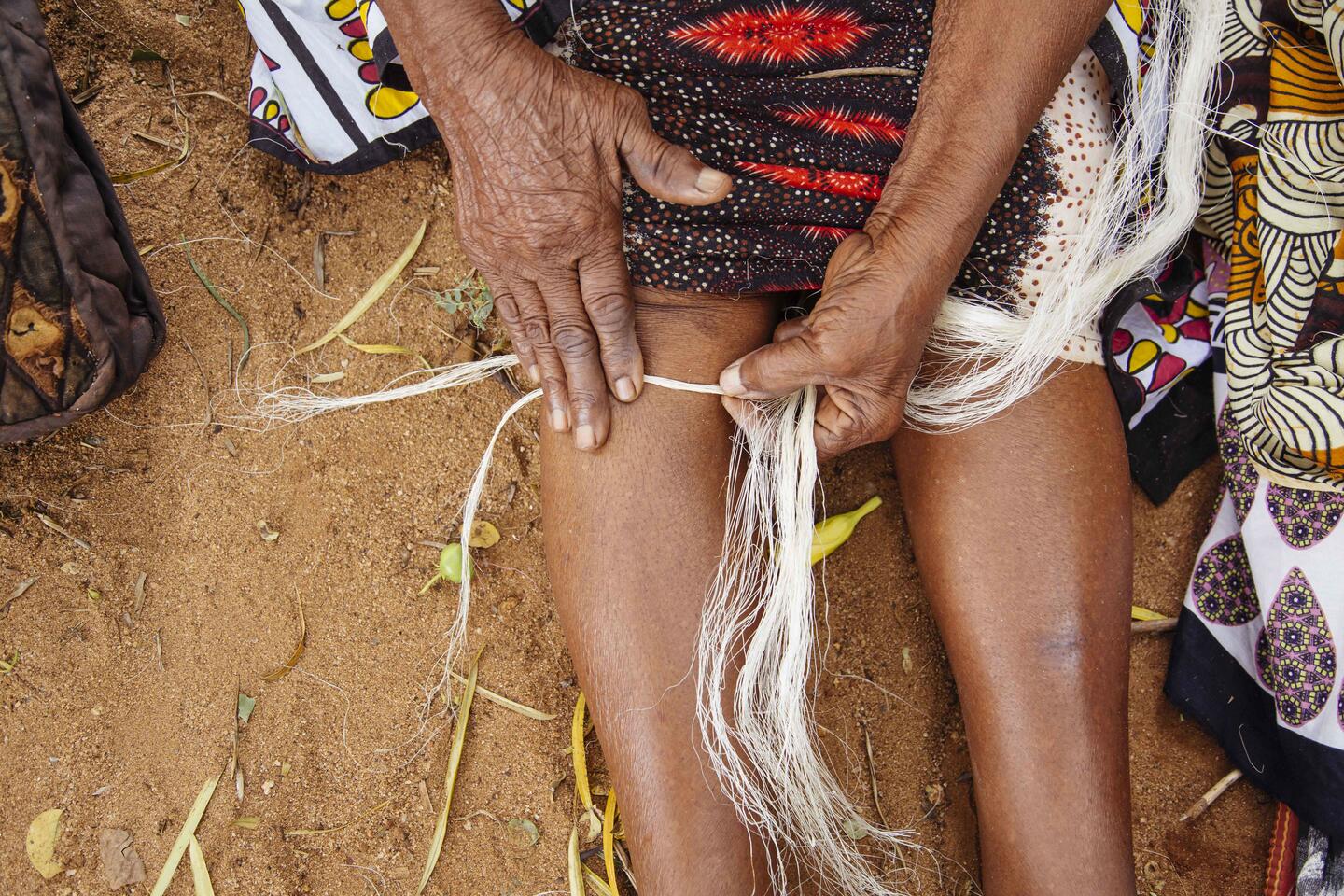
Without basket weaving, artisans Christine Makenga, Dorah Isack, and Peris Bakari said they would have to work as poultry farmers or selling crops. The survey shows that 50% of the basket weavers also farm produce when the scarce rainfall permits. This provides their families with additional food and income.
“Life has changed since I started to weave baskets. My children now go to school. I can buy food, clothes. Life is better now. I feel good, it gives me money and I sleep well at night,” Chairlady Magdaline Kethethesyo said.
The convenience, ease and flexibility of weaving from home give the artisans the opportunity to care for their community in more ways than one while living active lives.
“Weaving can be done in the home anytime, wherever I might be sitting,” said expert weaver Sophy Mwalundi. “I love being able to do it in my own time and I decide.”
Eda Maghanga also enjoys the flexibility of weaving at Hadithi, which allows her to pursue other business opportunities. "I also have a kiosk. I sell vegetables and bread,” she said. “I can weave baskets at the kiosk while I wait for customers.”

Luckily, as the world gravitates more towards a sustainable future in fashion, traditional African techniques are even more praised. This gives the women of Kasigau an optimistic future in basket weaving, while contributing to their ecosystem. Every Hadithi sale is a step away from environmentally detrimental practices such as the degradation of forests for charcoal, timber and farmland.
The International Trade Centre assesses a product or service's value chain to identify how to improve income, employment, and economic and social transformation. To achieve these goals, the ITC forms partnerships and strategies which benefit groups that are comparable to these talented weavers. These creative collaborations can benefit and build connections with these communities, who often lack recognition.
About the project
For the Ethical Fashion Initiative (EFI), lifestyle choices impact livelihoods. EFI acts as a bridge, connecting marginalized artisan communities in emerging economies with discerning global lifestyle brands, creating meaningful work and fair, decent working conditions.
We develop and sustain social enterprises, designers, artisans and micro-producers in fashion, interiors and fine foods. We build on tradition, heritage and craftsmanship, and inject modern production and business practices to improve quality, consistency and productivity while leaving intact the intrinsic value of the product’s provenance.
Discover more about the female artisans behind Hadithi at www.hadithikenya.com and www.hadithiline.com





